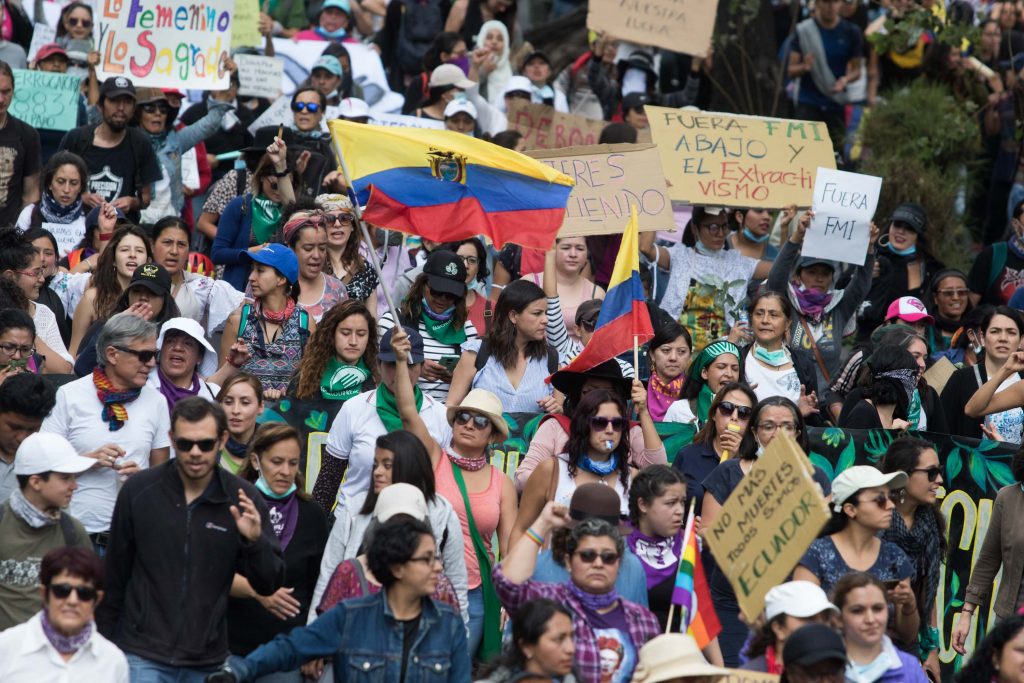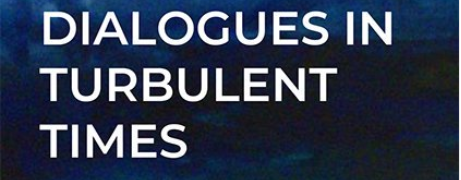It's now for the second time that the Degrowth Summer School took place at the climate camp in the coal-mining region of the German Rhineland with around 800-900 participants. Last year it had mainly focused on the topic of climate justice and on bringing the two movements – degrowth and climate justice – together. This year this seed has grown into a solid partnership and both concepts were integral part of the overall programme. Apart from the summer school courses themselves, the programme no longer differentiated between degrowth and climate camp events and also the organizing team had merged into one group. This gave room to concentrate on the systemic change both movements want to see in the world - and to develop the necessary skills to achieve it.
Under the motto "Skills for System Change" this year's event was all about empowering people to do things differently; to develop skills for both practising a new reality and deconstructing the various layers of systemic constraints, injustices and power-relations we are all trapped in. While the atmosphere, like last year, was that of a festival, summer school and camp very much concentrated on establishing day-to-day practices of resistance. This was not only reflected in the choice of courses - with included very practical things such as building solar showers, setting up repair-initiatives and urban gardening – but also in the non-hierarchical and participative camp structure and the integration of the daily topics. With daily inputs, open spaces and discussion groups, people could approach these topics from different angles - besides helping cook, cleaning the compost toilets or contributing otherwise to keep up the camp.
Each of the topics could have made a good camp or summer school motto by itself - thereby revealing the complexity of the vision of a true system change:Simon from Freiburg considers summer school and climate camp a special highlight of the year, "because it is a place where people come together to practice life in community and move things be means of community". He particularly liked the way "people are not sorted by their usual skills but by what they want to contribute and where they are needed". Feeling connected to other people played an important role for other participants too. Brototi from India who is in Europe for the first time put it this way: "You get to meet a lot of people from diverse backgrounds who are somehow linked by talking about the different initiatives they are involved in. There's an awareness that there are more people like yourself and that together you can change things." Many participants in the course on deep ecology stressed that good and deep connections to other people are essential for finding the strength not to give up and to keep up hope in the midst of the current crises.
Once again, building alliances and bridges between people and initiatives from the global North and South and between the different but systemically related struggles played an important part. In his keynote, Nnimmo Bassey, Right Livelihood Award laureate and Nigerian activist, stressed that activists in the world have no other options than building global alliances, because "the nature of the crisis, caused by transnational corporations, is also global". He feels, however, that there's "a sense of readiness to move to the next step of actions - to alliances across borders and across continents." Although the specific targets of the diverse local struggles might be different, "our objectives are the same, and the strength of any alliance is found in its diversity"
Sheila Menon, climate justice activist from the UK, particularly stressed that, in order to tackle climate change, we have to integrate climate and climate justice issues into all other seemingly separate but in a deeper sense related struggles of social justice. In order to do so, however, instead of talking to these people and initiatives, we should rather listen to them and show true solidarity by joining and supporting them in their struggles in the first place.
This is very much in line with an intervention from Lucky, an environmental activist from South-Africa, who said that the root cause of the diverse environmental and social crises lies in colonialism and that, as a first step, people from the global north should admit and acknowledge their privilege and that they in fact benefit from the results of colonialization. As an example he mentioned that Germany imports coal from South Africa, although there are many South Africans who have no access to electricity at all. Because the companies exploiting resources in the global south largely stem from the north, he calls northern activists to pressurize corporations and northern governments alike to stop this extracivism.
Simon from Freiburg, as well as many others at the climate camp and in the degrowth movement shares this view: "The discussion around privileged and examining one's own role is key". Thanks to the Friedrich Ebert Foundation who had brought in people from all continents, there were many opportunities for exchange also on personal level. This, together with many participants from other European countries, made the summer school a truly international event.
Now that the courses of the summer school have come to an end, it is time for the action lab where people can develop diverse and creative forms of resistance to disturb the coal mining infrastructure in the Rhineland. To put it with Nnimmo Bassey's words: "These coal mines are a crime scene, this is an ecocide. I didn't know about the size of all this. If I were you, I would try to bring this struggle to an international level".

On October 1st, Ecuadorian President Lenin Moreno announced a series of economic measures for the country, including the elimination of gasoline and diesel subsidies and the liberalization of their prices, as part of an agreement with the International Monetary Fund (IMF). These measures led to the eruption of massive nationwide protests for eleven consecutive days, which were met by the govern...

This year we celebrate the 10th anniversary of the first international degrowth conference in Paris, 18-19 April 2008. This event introduced the originally French activist slogan décroissance into the English-speaking world and international academia as degrowth. This year we celebrate with three conferences: the current one in Malmö, the one in Mexico City from 3 to 7 September and at the Post...
We are pleased to announce that registration to the conference is now open and the basic conference programme is available on our website: As of now, it includes seven keynote speeches and more than 20 panel discussions in addition to chosen scientific and artistic sessions. In the course of the coming weeks we will be completing the programme by around 250 further workshops and scientific sess...